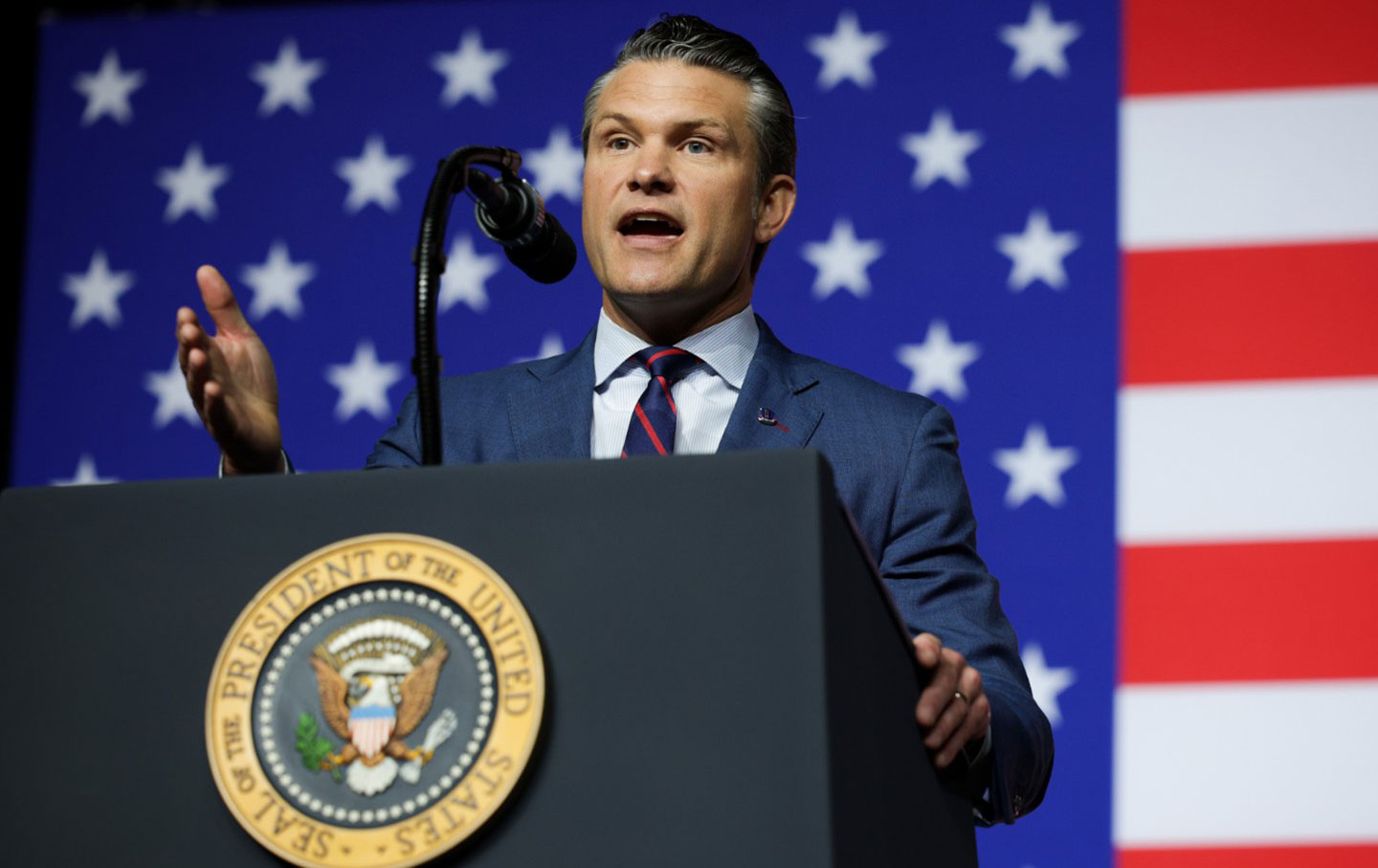
On Thursday night, President Donald Trump shared a striking music video on Truth Social featuring an AI-generated image of Russ Vought—Trump’s director of the Office of Management and Budget (OMB) and a key architect behind Project 2025. In the video, Vought is depicted as the grim reaper, wielding a scythe down a corridor adorned with portraits of Democratic leaders. The soundtrack ominously suggests that he “wields the pen, the funds, and the brain” to carry out the president’s agenda of dramatically reducing the federal workforce.
As the current shutdown crisis unfolds, Vought has emerged as Trump’s enforcer, threatening to enact severe cuts to federal employment. His ultimate goal appears to align with a long-standing ambition to minimize the federal government’s footprint and grant the president sweeping powers. This blend of bureaucratic expertise and hardline ideology has catapulted Vought into a prominent position within right-wing circles.
However, the sentiment in the Virginia suburb where Vought resides is far from favorable. Many of his neighbors express their discontent through yard signs proclaiming “This house supports federal workers,” a statement that resonates particularly in a community where a significant number of residents are employed by the federal government.
Cathy Hunter, a 60-year-old archivist who has lived in the area since 1993, shared that “so many people in this neighborhood are federal workers.” She added, “They do really good work and they just feel so disrespected.”
The signs of support for federal employees began appearing early in the Trump administration, coinciding with the dismantling of the U.S. foreign aid agency by Elon Musk’s Department of Government Efficiency (DOGE), which led to widespread purges of government employees. Many of these workers are now being rehired, resulting in a sense of urgency and concern within the community. In a recent New York Times article, a chalk protest was highlighted, proclaiming, “I was hungry and the USA fed me. Until Vought cut USAID.” Such grassroots expressions of dissent have proliferated throughout the neighborhood.
Residents are clearly alarmed by Vought’s actions. “People have strong feelings about him,” commented one resident, noting that the neighborhood is predominantly blue. “Everyone knows someone who lost their jobs.”
Another neighbor voiced a stark critique of Vought: “He takes food and health care from the neediest and tries to, in his words, traumatize people—then he calls himself a Christian. Pretty despicable.” The pervasive sense of community in this neighborhood, where many look out for one another, stands in stark contrast to Vought’s apparent disconnection from his neighbors. “I don’t think he’s interacted with the neighbors at all,” one resident noted.
The memories of Vought’s previous statements advocating for “maximum trauma” to federal workers linger among residents. “Everyone still remembers when he said he wanted to cause maximum trauma to federal workers,” another neighbor lamented. “And that’s hard to forget.”
Many residents who spoke out for this piece preferred to remain anonymous, fearing potential backlash or repercussions from their employers. “I just wish he would have gotten to know us,” Hunter expressed. “We consider ourselves good Americans, we have good values. And I don’t think he’s been interested in getting to know any of us, in hearing if we might have a difference of opinion.”
Last week, Vought circulated a memo attributing the impending lapse in funding to Democrats’ “insane demands,” instructing agency heads to prepare for cuts to non-mandatory programs not aligned with the president’s priorities, and suggesting this was an opportunity to consider a Reduction in Force. During an appearance on Fox Business, Vought claimed he has the authority to implement permanent changes in the federal bureaucracy during the shutdown.
Subsequently, he announced delays in funding for infrastructure projects in New York, the home state of House Minority Leader Rep. Hakeem Jeffries, who described Vought as a “malignant political hack.” Additionally, clean energy projects in several blue states are facing slowdowns under Vought’s directive.
Senator Mike Lee of Utah remarked on Fox News that Vought has been “dreaming about and preparing for his moment since puberty,” highlighting his long-standing ambitions within the conservative movement.
As previously reported in a 2024 profile of Vought, he has spent years navigating the corridors of power in Washington, becoming a central figure in shaping a robust second Trump presidency. Identifying as a Christian nationalist and an ardent proponent of the America First agenda, Vought previously sought to ease the process for political appointees to dismiss career civil servants, aiming to replace them with staunch MAGA loyalists. Now, he is positioned to realize that vision while gaining favor with Trump.
For many in the community, the implications of Vought’s policies are deeply personal. “You stare it in the face when he’s there,” one resident remarked, emphasizing the disconnect between Vought’s actions and the lives of those living nearby. Another neighbor, who also declined to be named, expressed that many in the area find Vought’s actions “abhorrent.”
“Frankly, I’d rather not live near such a man,” they confessed. “But this is a wonderful neighborhood, and, unlike Mr. Vought himself, we do not want our neighbors—even Mr. Vought—to be traumatized. So we just live with it.” The tension between Vought’s role in the administration and the values of his community reflects a broader national struggle over the future of government, social services, and the treatment of federal workers in the face of political ambition.


